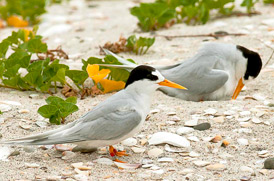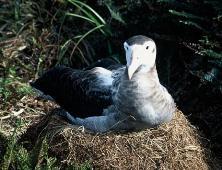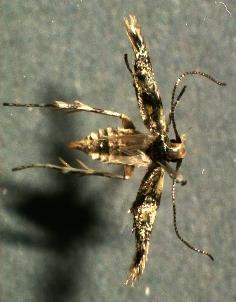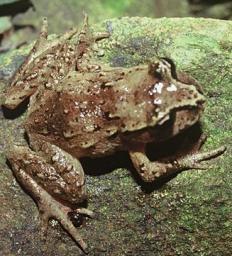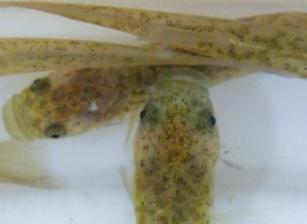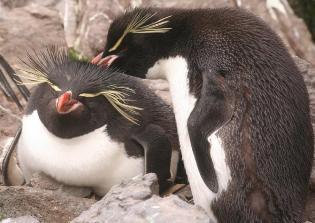Aotearoa NZ – December 8, 2023 - As world leaders convene at the 2024 UN Climate Change Conference, New Zealand stands accused of neglecting its environmental responsibilities. While committing to net zero emissions by 2050, the new government's decision to restart oil and gas exploration has earned them the title of "Fossil of the Day".
Meanwhile, the crisis for New Zealand's unique biodiversity continues. Aotearoa holds the dubious title of having the highest species extinction rate in the world, with our native species facing a barrage of threats, from habitat loss and overfishing to rising sea temperatures and ocean acidification.
“Today, Tāngaro Tuia Te Ora, the Endangered Species Foundation sounds the alarm for ten of Aotearoa's most endangered species, all on the brink of extinction and being impacted negatively due to climate change,” says General Manager, Natalie Jessup. “We also issue ten urgent calls to action for the New Zealand government.”
Many vulnerable native species, from the elusive Kiwaia "Cloudy Bay" (mat daisy jumper) to the Kapitia skink, are facing extreme changes in their habitats. Warming temperatures and an increase in extreme weather events are putting their survival at risk.
Top Ten Climate Refugees of New Zealand:
1. Kiwaia "Cloudy Bay" moth (mat daisy jumper)
2. Māui dolphin (Popoto)
3. Tara iti - New Zealand fairy tern
4. Rakiura flightless stonefly
5. Eastern rockhopper penguin
6. Antipodean albatross
7. Lowland longjaw galaxias
8. Hamilton’s frog
9. New Zealand Sea Lion
10. Kapitia skink
The latest report on New Zealand's climate, "Our Atmosphere and Climate 2023[1]," paints a stark picture of the country's vulnerability to climate change. The report, produced by Statistics NZ and the Ministry for the Environment, indicates that human activities are exerting immense pressure on the climate, leading to adverse effects on our environment, communities, and native species.
It is expected that New Zealand will experience an additional 1-1.3°C of heating by 2050, on top of the temperature increase already witnessed. This rise in temperature is intensifying the heat, leading to impacts on native species such as kiwi, blue ducks, and North Island kōkako. These species are currently grappling with a "thermal squeeze." While some species are venturing to cooler areas as the climate warms, others, like kiwi, have limited mobility. The potential loss of coastal breeding sanctuaries for endangered birds due to rising seas is also a growing concern.
“The impacts of climate change extend well beyond humans to native birds and fish,” says Jessup. “Sadly, rising ocean temperatures and acidity are making it difficult for gulls, penguins, and other marine species to find food”.
Aotearoa New Zealand can expect hotter and more frequent marine heatwaves, possibly becoming permanent by the end of the century. A key solution to reducing this is the restoration of our biodiversity.
“We know that restoring wild animal populations can help to remove 95% of the 500 gigatons of carbon from the atmosphere that we need to extract to meet the 1.5-degree climate target[2],” says Jessup. “New Zealand and the rest of the world needs to urgently restore healthy forests and wetlands to mitigate the impacts of floods and storm surges”.
Ten Calls to Action for the NZ Government:
Climate change poses a grave threat to New Zealand's unique biodiversity and urgent action is required to protect endangered, native species. We urge the New Zealand Government to take the following actions:
Strengthen the 2030 emissions reduction target and reinstate climate policies that have been removed.
Continue the ban on offshore oil and gas exploration and halt the granting of mining permits for mineral prospecting.
Invest significantly in public transport and rail systems to reduce emissions.
Implement measures to cut actual emissions across all sectors.
Protect and conserve the remaining native ngahere (forests) with a commitment to preserving existing trees, planting native forests instead of pine, to ensure a more sustainable approach to carbon reduction.
Support the restoration of biodiversity to enhance soil health and water sources.
Fund the restoration of our waterways, acknowledging their critical role in the carbon cycle.
Protect coastal habitats, which serve as significant carbon sinks.
Cease bottom trawling and seabed mining, which release stored carbon from the seabed.
Fund research so we can understand population sizes of our most threatened species.
How Rising Temperatures Effect These 10 Endangered Species Climate Refugees:
Kiwaia "Cloudy Bay" (mat daisy jumper): This small moth is flightless and mainly jumps to get around. It faces threats from invasive species, habitat loss, and climate change, which may increase extreme events damaging the tiny areas of stony beach it inhabits.
Māui dolphin (Popoto): The rarest dolphin globally, climate change is affecting them through rising sea levels, temperature shifts, changes in food supply, and extreme weather events.
Tara iti - New Zealand fairy tern: The rarest of native breeding birds, climate change threatens them with changes in food supply, extreme weather events and rising sea levels.
Rakiuraperla nudipes (Rakiura flightless stonefly): This stonefly's alpine habitat is vulnerable to climate change, including increased temperatures and invasive species.
Eastern rockhopper penguin (Eudyptes filholi): Rising sea temperatures affect their food supply and breeding success.
Antipodean albatross (Diomedea antipodensis antipodensis): Climate change impacts their food supply forcing them to forage over ever-greater distances and exposes them to heat stress.
Lowland longjaw galaxias (Galaxias cobitinis): Rising water temperatures and erratic rainfall patterns threaten their survival.
Hamilton’s frog: Vulnerable to habitat loss and disease, dryer summers due to climate change further endanger them.
New Zealand Sea Lion: Facing threats from fishing and climate change-induced ocean conditions, their population is at risk.
Kapitia skink: Critical habitat loss due to climate change-induced storm events jeopardises this species.
As the world confronts the dire consequences of climate change, the protection of these unique and endangered species is a moral imperative. Their plight serves as a stark reminder of the urgency to address climate change and its devastating effects on our planet's biodiversity.
The time for action is now. The decisions we make today will determine the future of our planet. We urge the New Zealand government to take immediate and decisive action to ensure the survival of our unique biodiversity and reduce the impacts of climate change for us all.
For further information please contact: Natalie Jessup, General Manager Tāngaro Tuia Te Ora - The Endangered Species Foundation Mobile: +64 (0) 22 121 5913
Tāngaro Tuia te Ora - The Endangered Species Foundation
Tāngaro Tuia te Ora, The Endangered Species Foundation has the goal of reigniting survival through revival and is dedicated to addressing New Zealand's biodiversity crisis. With over 7500 species at risk of extinction, including 800 high-risk species, only 25% can currently be managed by the Department of Conservation (DOC). Our foundation works collaboratively with iwi Māori and partner organisations to support and fund conservation projects, to protect vulnerable indigenous species and their habitats. We aim to mobilise movements, raise awareness, provide resources for projects and share stories of change to inspire action and education.
Visit our website to find out more: www.endangeredspecies.org.nz

